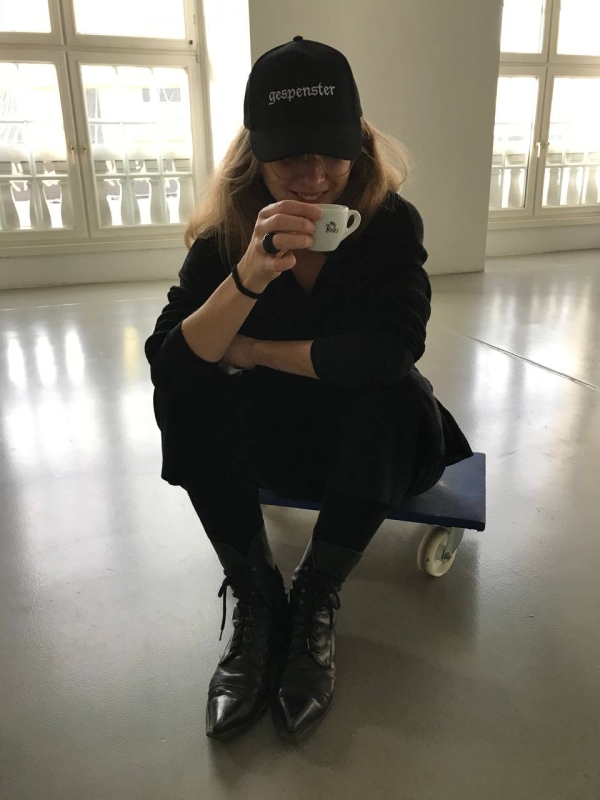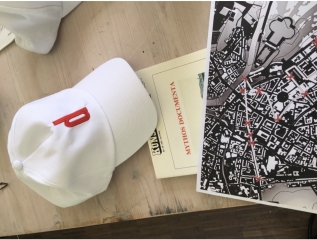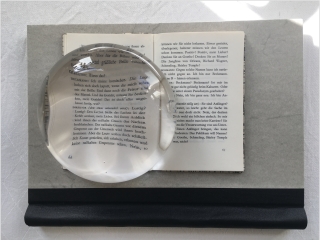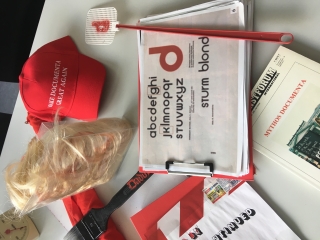d is for ?
Nanne Buurman
Art History
Heal the World, or: documenta as a Haunted House
In their first statement after being nominated
as artistic directors of documenta 15 in 2019, ruangrupa announced that “if documenta was launched in 1955 to heal war wounds,
why shouldn’t we focus on today’s injuries, especially the ones rooted in colonialism, capitalism, or patriarchal structures”,
thereby invoking the idea of the exhibition as a nurse tending to the wounds inflicted by the respective dominant system.
With a focus on the etymological links between curating and curing, the notion of healing has become even more pervasive in
artistic and curatorial discourse since the pandemic. Starting from a heuristic model of exhibitions as households with specific
gendered divisions of labour and distributions of power, I would like to complicate the notion of healing by calling attention
to its ambivalent histories within and beyond documenta. By looking at the socially re/productive dimensions of curating,
the presentation aims to undo all too comfortable understandings of curating/care as purely good things also shedding light
on the dark side of the cura and its governmentalities. The presentation thus deals with documenta as a haunted house – haunted,
as it is, by the undead spirits of the past that don’t just live on between the pages of history books and behind the walls
of exhibitions but also inhabit our bodies and minds, thus affecting cultural infrastructures more broadly.
documenta
as a Haunted House
One of the first documenta’s aims in 1955, the year of the Federal Republic of Germany’s
independence, was to rehabilitate the modern art that had been ostracized by the Nazis in the exhibitions of so-called degenerate
art. While documenta has therefore generally been perceived as an arbiter of democracy, whose makers were performing a radical
break with the Nazi past, in her talk Nanne Buurman will address the ways in which the exhibition not only served as a ‘Weapon
in the Cold War’ but was also deployed by some of its founders as means of whitewashing German (art) history, including their
own roles within ‘Third Reich’ cultural politics. Focusing on documenta’s socially reproductive (or even reparative) functions
as a cultural midwife of West German identity, she will discuss how the institution provided a framework in which völkisch-nationalist
ideas, concepts, and forms could be recycled, cleansed and resignified for new political uses. Drawing on her recent research
and practice , the talk will thus unearth some of the undead spirits of the past that were haunting the “100 day Museum” during
documenta’s postwar editions to reflect on the politically ambivalent heritage of modernity and its uncanny hauntings until
today.
Nanne Buurman is an author, editor, curator and educator based in Leipzig. As a researcher
and lecturer for documenta and exhibition studies at the Kunsthochschule Kassel, she was part of the team building the documenta
Institut (2018-2020). In that capacity, she was also involved in founding the University of Kassel’s Transdisciplinary Research
Center for Exhibition Studies TRACES. 2020-2022 she was co-head of the dis_continuities research group on Nazi continuities
at documenta. After graduating from Leipzig University, she was a member of the International Research Training Group InterArt
at the Freie Universität Berlin and a visiting scholar at Goldsmiths College in London, supported by a DFG scholarship for
her doctoral research on the gendered economies of curating. Furthermore, Buurman worked as an adjunct lecturer at universities/art
academies in Leipzig, Hildesheim, Bremen, Frankfurt (Main), and has been involved in numerous art education, exhibition, and
publication projects, such as the curatorial research project in freiheit dressiert. being natural is simply a pose (Kassel/Leipzig
2019), the Networks of Care program (nGbK Berlin 2021), the experimental exhibition wir alle sind gespenster: haunting infrastructures
(Kunstverein Kassel 2021) and the g/hosting the past project at documenta fifteen (2022). Her research and publications focus
on museum- and exhibition studies, the politics, economies and epistemologies of curating, the past and present of documenta,
the shifting roles of race, class and gender in artistic and curatorial practice, the transcultural conditions of cultural
production in a global context as well as the political ambivalences of modernity and their uncanny hauntings today. She co-edited
documenta: Curating the History of the Present (with Dorothee Richter, 2017), Situating Global Art: Temporalities – Topologies
– Trajectories (with Sarah Dornhof, Birgit Hopfener and Barbara Lutz, 2018), and Networks of Care. Politics of Preserving
and Discarding (with Anna Schäffler and Friderike Schäfer, 2022). She serves as an editor of the research platform documenta
studies, which she co-founded with Nora Sternfeld, Carina Herring, and Ina Wudtke in 2018.







